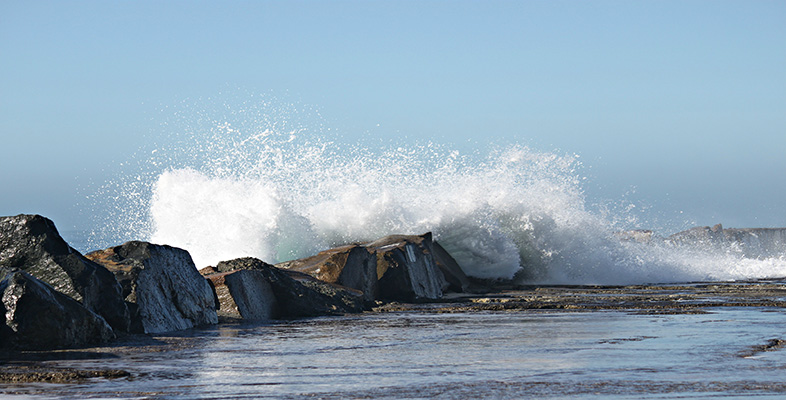2.1 The significance of geography as a subject
It has been argued that geography ‘has been hijacked by environmentalists’. Following the publication of his original article, ‘Constructing a value map’ (see under the link below), Alex Standish (a former geography teacher) appeared on the Radio 4 Today programme to discuss this topic. Listen to the interview again and read the transcript again by clicking on the link below.
Read Alex Standish's 'Constructing a value map' by clicking 'view document' below.
View document [Tip: hold Ctrl and click a link to open it in a new tab. (Hide tip)]
Listen again to the radio interview.
Transcript: Audio 2
The discussion shows a three-way lack of a shared understanding of geography between Alex, the presenter and David Lambert.
The presenter worried that ‘there are children out there who maybe don't know what an oxbow lake is’. Both Alex and David agreed. Both were not too worried about this supposed lack of particular knowledge, but for different reasons.
The discussion began to show why a subject discipline like geography is important. As a form of 'disciplined enquiry' it can ensure against woolly environmental propaganda. What divided David and Alex was their take on ‘values’, and Alex's insistence that the teaching of ‘facts’ can be done in a value-free way.
The radio discussion begins with the provocative question/headline used on the previous screen: ‘Does the teaching of geography matter any more?’ Taken in its entirety, the discussion also shows the limits – and opportunities – of the popular media. All of us can provide a long and reasoned answer to the question. But can we provide the short and direct answer that listeners need at 8.20am, just before the sports news, to make it stick in the mind.
Without such clarity and directness, it could be argued that the public comprehension of geography and its significance will remain dull and blurred. The piece, in fact, showed three people almost talking at cross-purposes to each other!
Thus:
-
Standish asserts that school geography now ‘tells students how to think and act in relation to problems in the world’ (instead of) ‘giving them the knowledge and leaving it to them to make up their own minds about how they should behave and the decisions they should make.’
-
Lambert retorts that, ‘One reason to have geography in the curriculum is to guard against indoctrination and propaganda. If “environmental studies” were on the curriculum maybe what Alex is saying would come true.’
-
And the presenter worries about change – schools no longer teaching what he learned at school.
Several texts that extend the discussion are supplied in the links below.
Click 'view document' to read Alex Standish's 'Valuing (adult) geographic knowledge'.
Read David Lambert on 'The power and relevance of geography in education' by clicking on 'view document' below.
Read Alastair Bonnet's 'Geography as the world discipline: connecting popular and academic geographical imaginations' by clicking 'view document'.
But to argue that teaching geography can be accomplished simply by focusing on ‘the facts’ is in itself careless – of the need to show pupils how to use good description, analysis and evaluation in order to respond intelligently to disputes, controversies and arguments about issues.
Subjects like geography develop approaches to ‘disciplined enquiry’ that use a small number of very important concepts. When these are used and grown, using real data and examples, they do not ‘tell’ pupils what to think, but help them to think about matters that are truly complex.
A letter published by The Independent in June 2004 ('European apathy to the next generation'; click 'view document' below to read) illustrates what could be a problem when subjects – and their significance in helping us think more intelligently – get forgotten.
It is perhaps not too surprising to find youngsters turned off in a ‘Key Skills’ lesson for which ‘Europe’ was the vehicle. For isn't this the wrong way around? Shouldn't the skills be serving the content? And shouldn't the future of Europe (as a concept, as a place, as a market, as a source of identity.) be the content of geography lessons? Study Europe geographically and we can avoid all that anxiety about indoctrination.
And the key concepts? Go to the section on Geography's eductional power; page 5 of this course.
But first, explore the ideas in the radio interview and The Independent letter further in Activity 2.
Activity 2
Click "view document" to re-read the 'European apathy of the next generation'.
Remind yourself of the Radio 4Today programme interview.
Transcript: Audio 3
Now try to answer these questions:
-
Do you agree with Standish's assertion that ‘geography is increasingly focused around values and less about knowledge'?
-
Do you agree with his analysis of the resulting ‘problem’ – that geography becomes propaganda?
-
What do you think Lambert means when he retorts that geography may be the safeguard against propaganda?
-
Read the letter to The Independent newspaper (June 2004). Compose an imaginary response asserting the strengths of a curriculum that emphasises ‘disciplined enquiry’ (subjects) rather than ‘skills’.
-
The Radio 4 presenter introduced his piece with the question: ‘Does the teaching of geography matter any more?’ Does it?
